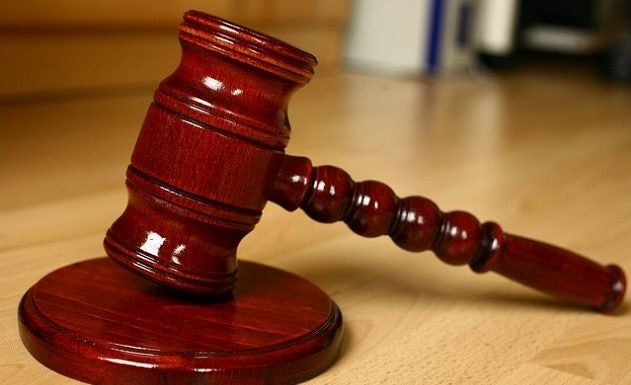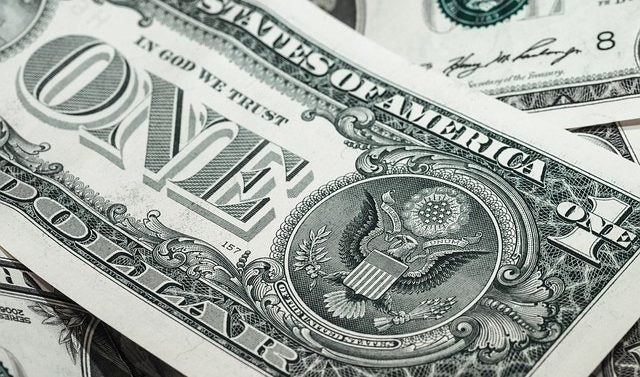Sales tax bill vetoed by governor. What’s next for Prince Edward?
Published 7:31 am Thursday, April 11, 2024
|
Getting your Trinity Audio player ready...
|
Now it’s time to try again. After getting someone to sponsor and push it through the Virginia House and State Senate, it appeared Prince Edward County’s sales tax bill was on its way to becoming a law. That path got a little rockier this week, as Virginia Gov. Glenn Youngkin vetoed the proposal, saying he refused to approve a tax increase.
“We’re very disappointed that the sales tax bill got vetoed by the governor,” said Prince Edward County Administrator Doug Stanley. “We still hold out some hope that because it really was a bi-partisan bill, we hope there is enough support to either override the governor’s veto or, through budget negotiations, the language could be approved.”
To explain, the request is to raise Prince Edward’s sales tax by 1%. In Virginia, a city or county has to first get permission from the General Assembly, then citizens have to vote on the concept before it can happen. So even if this bill does get signed into law, all that means is residents would go to the polls in November and decide if they want it or not.
The money would be earmarked to help cover renovation costs at Prince Edward Elementary. The current agreement, which county supervisors agreed to last August, stands at $43.3 million. Money from the sales tax increase would help pay the yearly debt service on the project. The problem is that Prince Edward’s original bill was merged with a statewide version, giving all counties permission to ask their residents for approval.
Youngkin said he understood the need for school construction, but argued this isn’t the right way to get it done.
“This proposal could result in a nearly $1.5 billion a year tax increase on Virginians,” Youngkin said. “Some localities would have a combined sales tax rate of eight percent, with no additional offsets, such as reduced income tax or property tax.”
He also argued that there’s no actual guarantee counties would increase education spending if the tax passed. Instead, Youngkin argued, the county could trim the education budget by say $2 million, using it in another area. Then, they could use the $2 million generated by the sales tax to fill the gap.
“While the tax is dedicated to school capital costs, such as information technology, the new source of revenues would indirectly release funding for other purposes, supplanting other revenues without necessarily increasing education spending,” Youngkin said.
Looking at the current budget
Youngkin also pointed out that his proposed budget, which is still being debated in the Assembly, includes a $1.2 billion increase in K-12 appropriations over the next two years. That includes money for construction loans and grant funding. That should be enough to help address needs, he argued, rather than a new tax.
Instead, he urged counties and the Assembly as a whole to work on “a tax policy that unleashes economic development and prioritizes job and wage growth through innovative reforms. These reforms must allow hardworking Virginians to keep more of their money, not less.”
The problem, and the reason why Prince Edward County has repeatedly tried to get this passed on their own, rather than push for a statewide bill, is due to need.
As we’ve covered many times before, Prince Edward County Elementary has multiple roof leaks, problems where some classrooms are unusable due to mold and traffic problems due to the current design, just to name a few of the issues. And supervisors have already signed off on the renovation plan, with construction expected to begin in late summer. But the question has already been how will the county pay for it?
With no guarantee that a grant or loan would be approved, supervisors worked on getting the sales tax proposal through, so that more people than just residents would help fund it. This way, people like those who showed up this month to watch the Harlem Globetrotters at Longwood’s Joan Perry Brock Center or who saw Hampden-Sydney make a run at the Division III NCAA basketball title would be contributing through every purchase.
What’s left, besides a sales tax bill?
So the sales tax bill got vetoed. What’s next? First, the county looks to the Assembly’s veto session, set for later this month. If they can get enough support, the veto can be overturned. If that doesn’t work, negotiators could add the language to the final two-year state budget, which will be voted on at some point in 2024.
Regardless, Prince Edward County will move forward with construction plans at the school, Stanley said.
“We’re committed to moving forward with the elementary school project,” Stanley said. “We’ll go out to bid this summer and start the project this fall. This is our third year of trying (to get it passed), so we’re disappointed but not giving up.”
And if none of those other options come through, Stanley said there’s always the backup plan, which would mean considering real estate tax increases next year.





